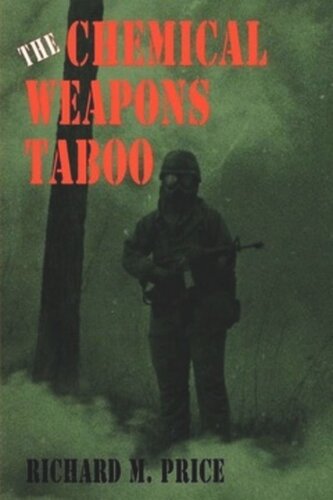

Most ebook files are in PDF format, so you can easily read them using various software such as Foxit Reader or directly on the Google Chrome browser.
Some ebook files are released by publishers in other formats such as .awz, .mobi, .epub, .fb2, etc. You may need to install specific software to read these formats on mobile/PC, such as Calibre.
Please read the tutorial at this link: https://ebookbell.com/faq
We offer FREE conversion to the popular formats you request; however, this may take some time. Therefore, right after payment, please email us, and we will try to provide the service as quickly as possible.
For some exceptional file formats or broken links (if any), please refrain from opening any disputes. Instead, email us first, and we will try to assist within a maximum of 6 hours.
EbookBell Team

4.3
48 reviewsRichard M. Price asks why, among all the ominous technologies of weaponry throughout the history of warfare, chemical weapons carry a special moral stigma. Something more seems to be at work than the predictable resistance people have expressed to any new weaponry, from the crossbow to nuclear bombs. Perceptions of chemical warfare as particularly abhorrent have been successfully institutionalized in international proscriptions and, Price suggests, understanding the sources of this success might shed light on other efforts at arms control.To explore the origins and meaning of the chemical weapons taboo, Price presents a series of case studies from World War I through the Gulf War of 1990–1991. He traces the moral arguments against gas warfare from the Hague Conferences at the turn of the century through negotiations for the Chemical Weapons Convention of 1993. From the Italian invasion of Ethiopia to the war between Iran and Iraq, chemical weapons have been condemned as the "poor man's bomb." Drawing upon insights from Michel Foucault to explain the role of moral norms in an international arena rarely sensitive to such pressures, he focuses on the construction of and mutations in the refusal to condone chemical weapons.